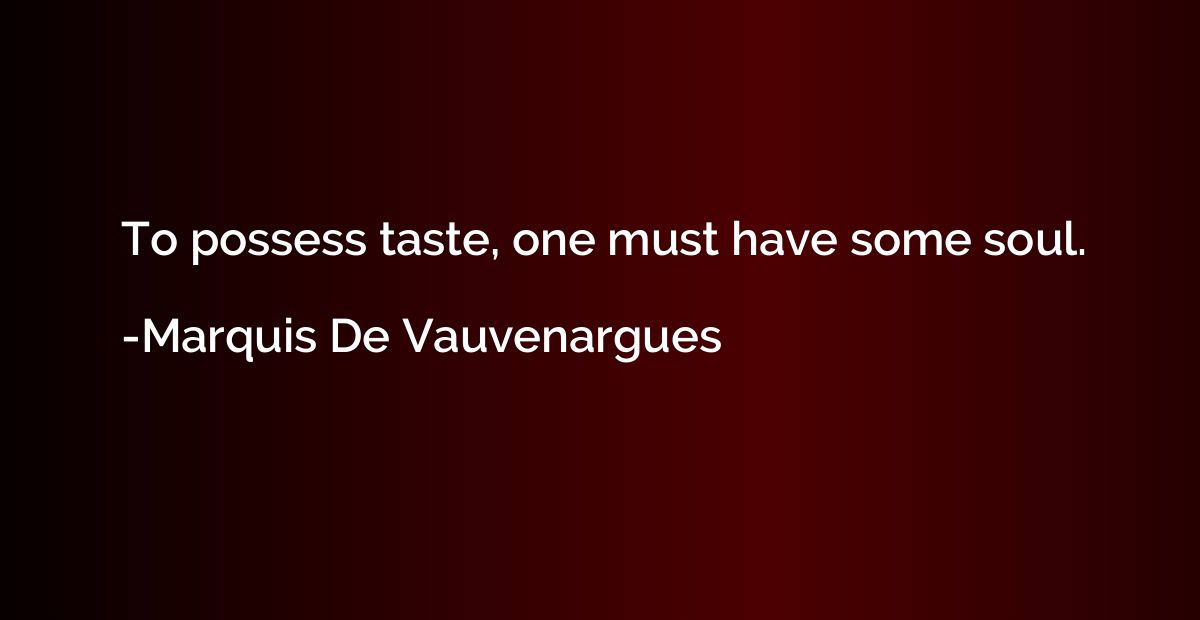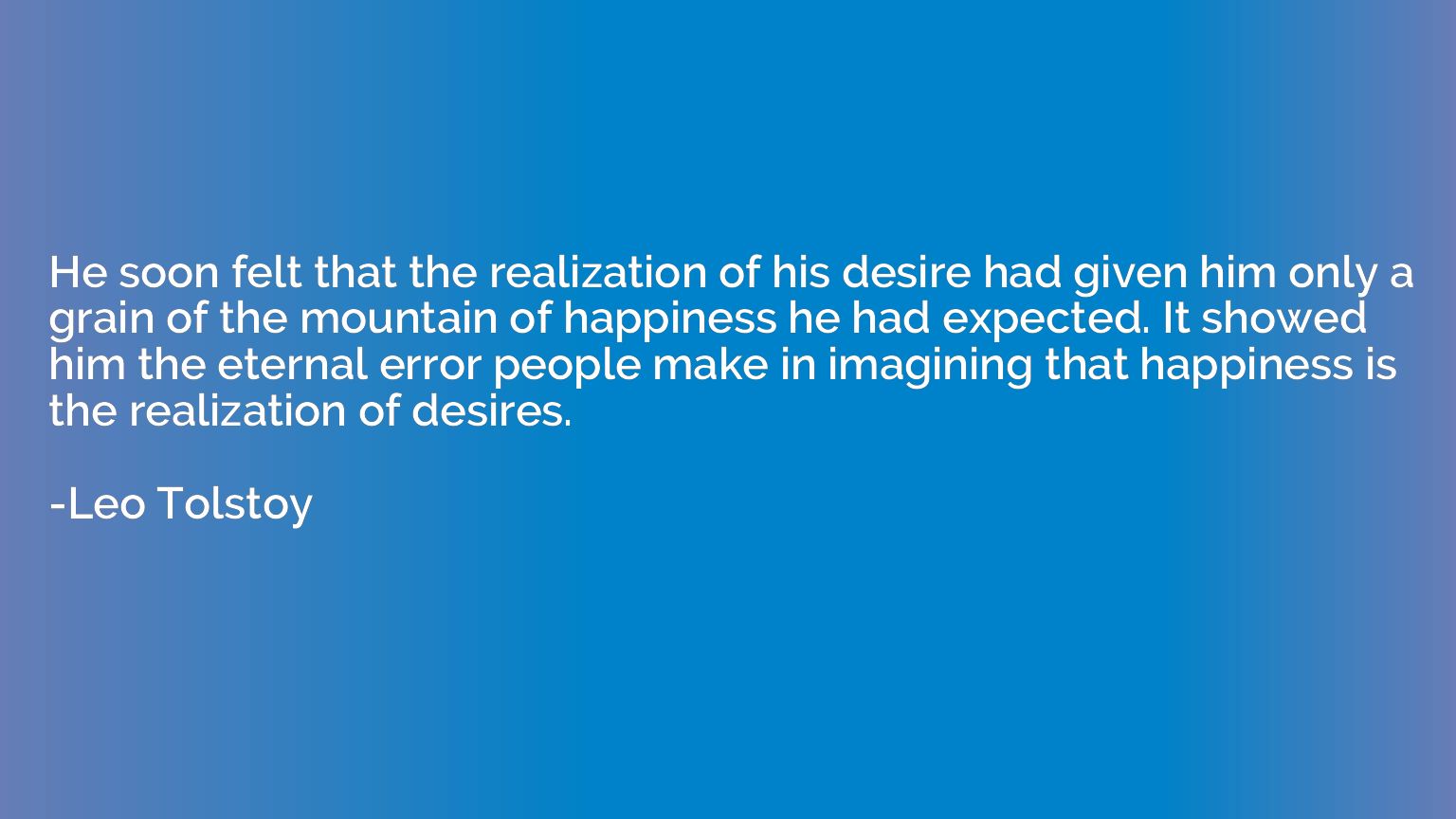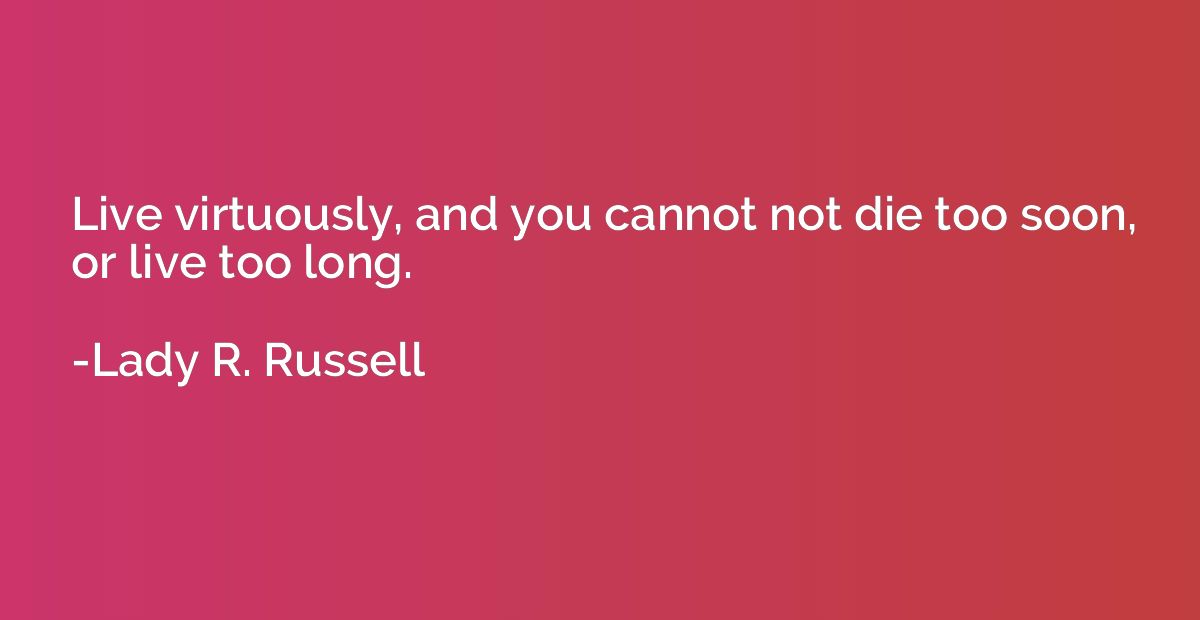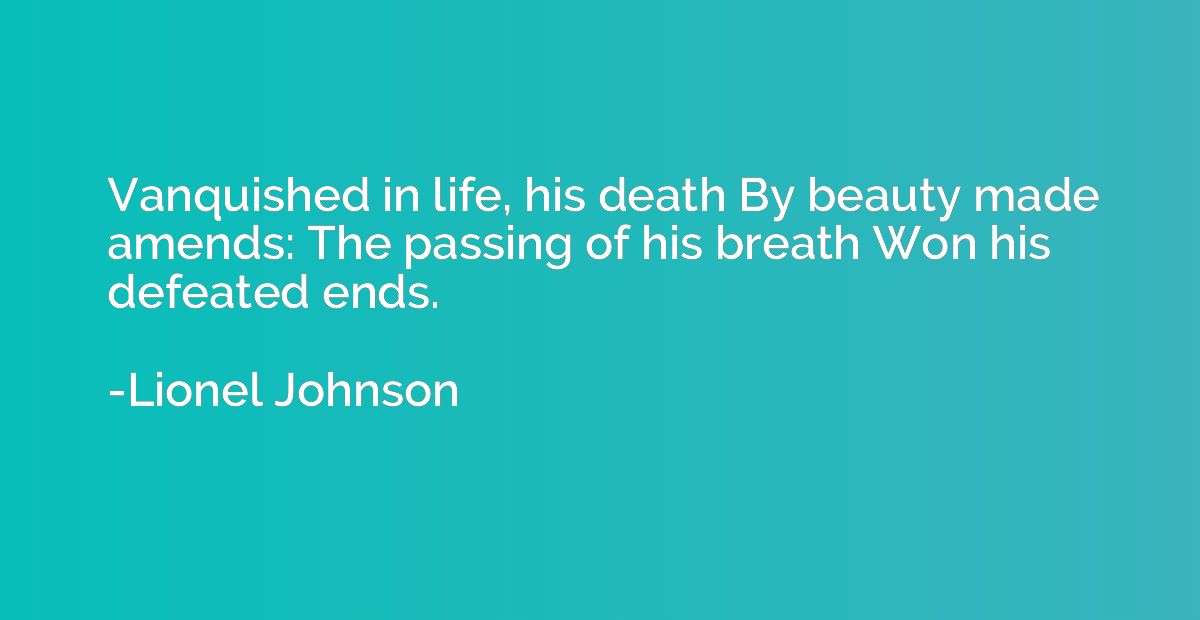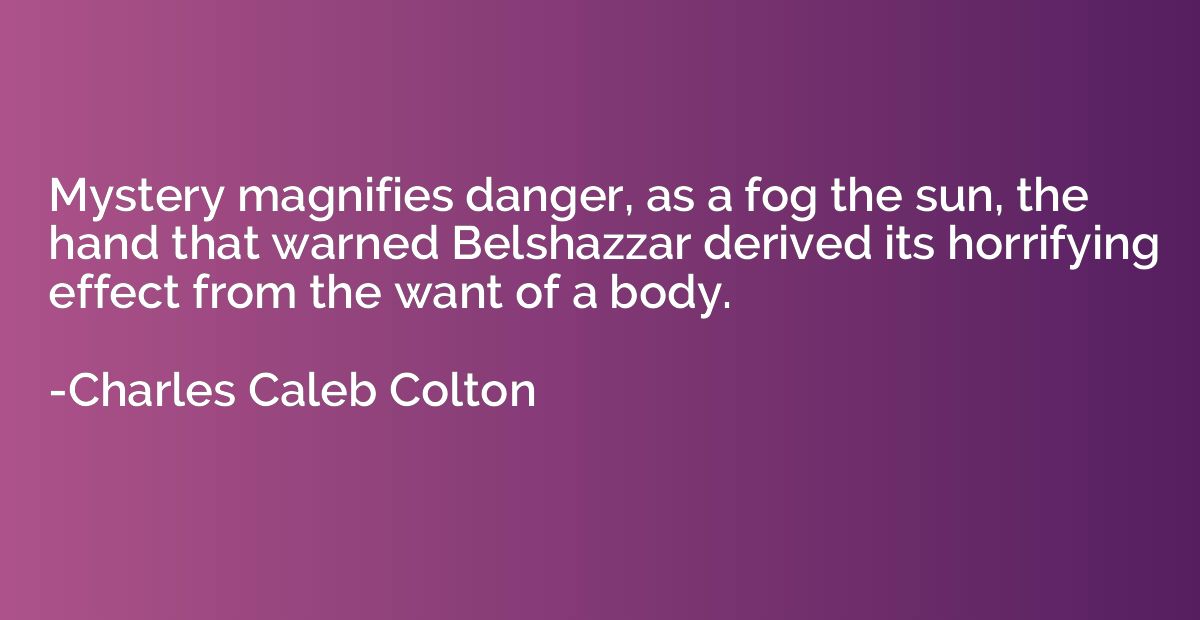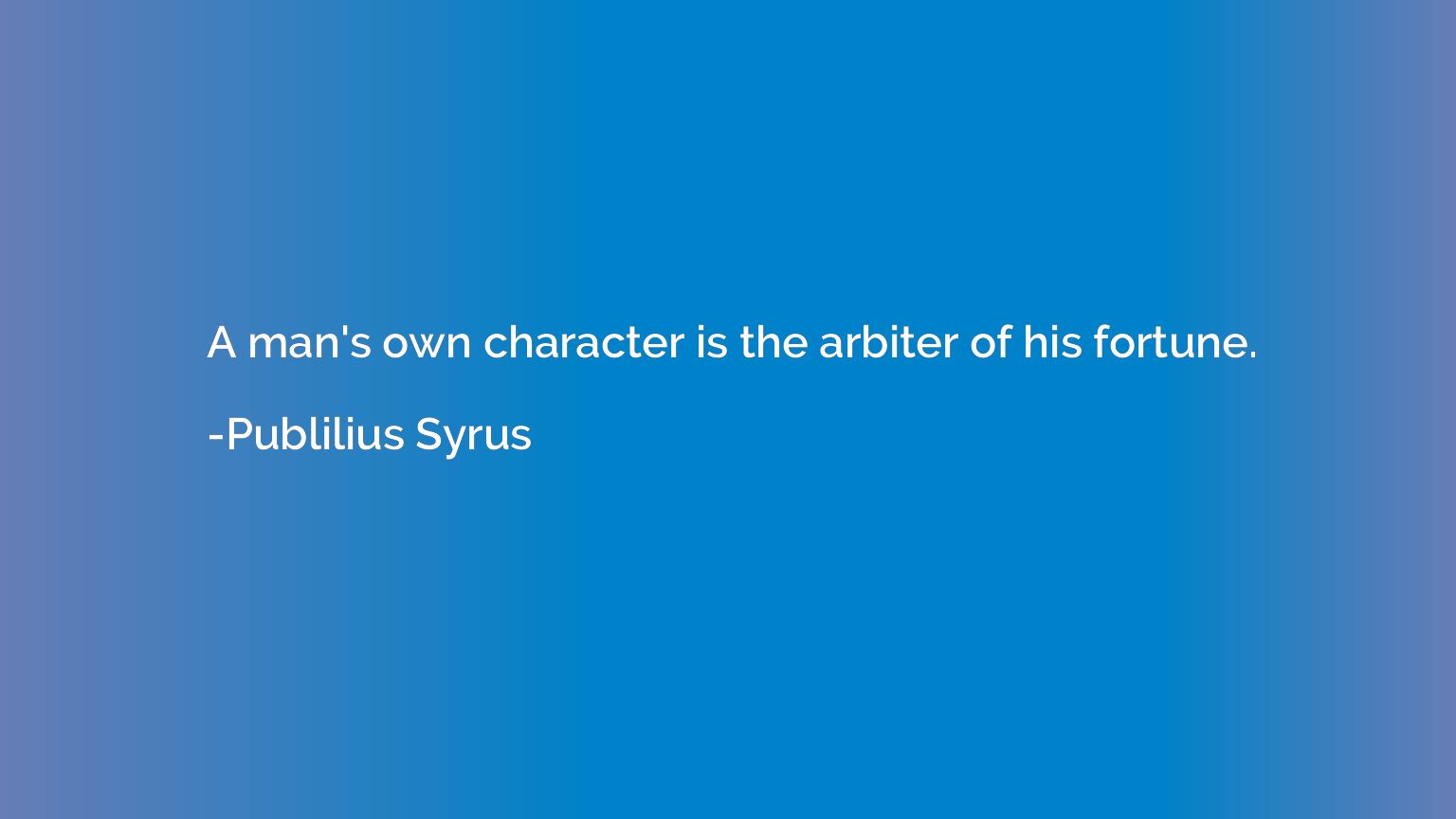Quote by Albert Camus
On veut gagner de l'argent pour vivre heureux et tout l'effort et le meilleur d'une vie se concentrent pour le gain de cet argent. le bonheur est oublié, le moyen pris pour la fin.
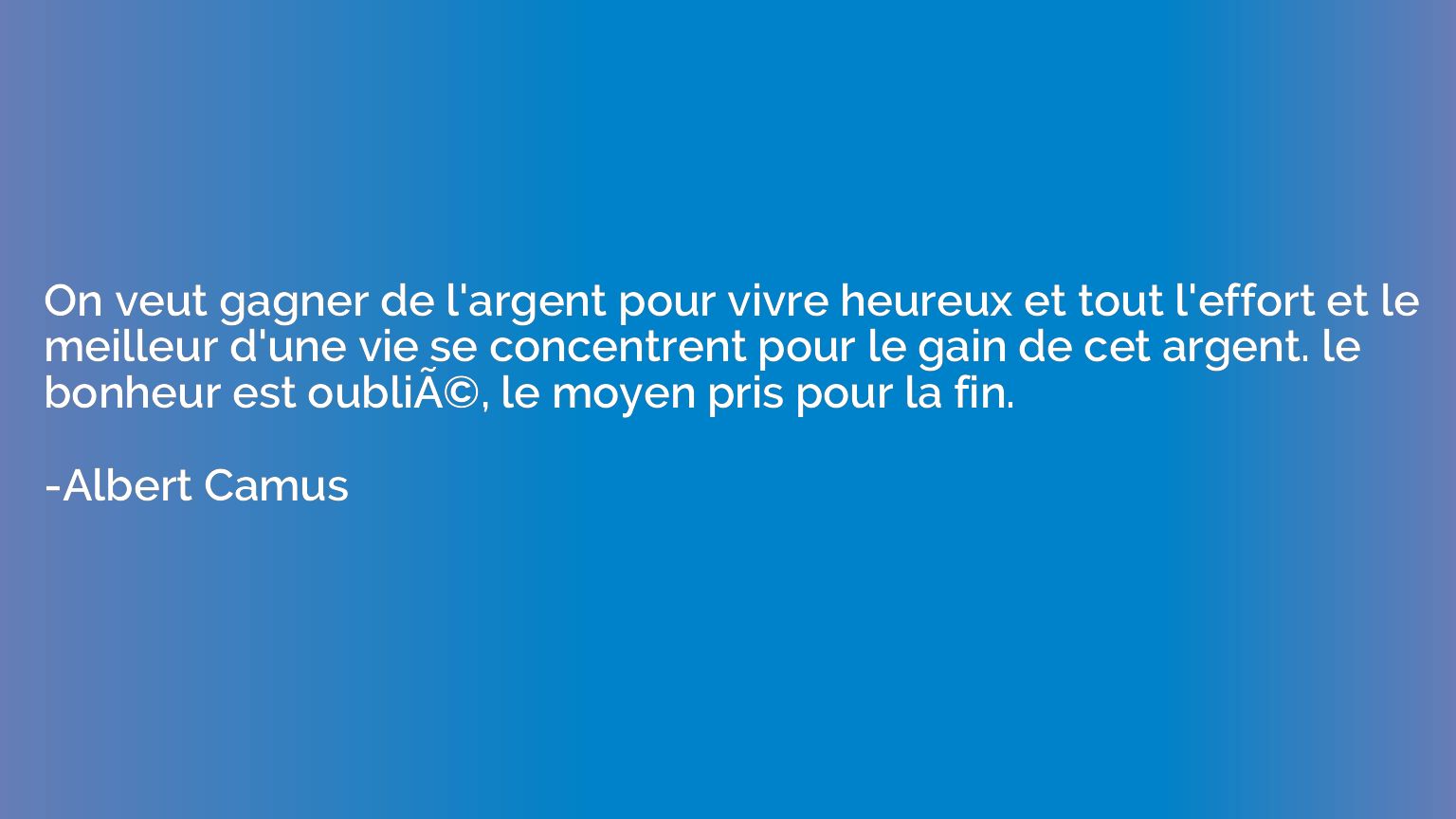
Summary
This quote highlights the tendency of individuals to prioritize the pursuit of wealth over true happiness. It suggests that people work hard and dedicate their lives to making money, often disregarding their overall well-being and disregarding the true purpose of their efforts. The quote implies that society has become fixated on material gain, losing sight of the fact that financial success alone does not guarantee happiness and fulfillment.
By Albert Camus



